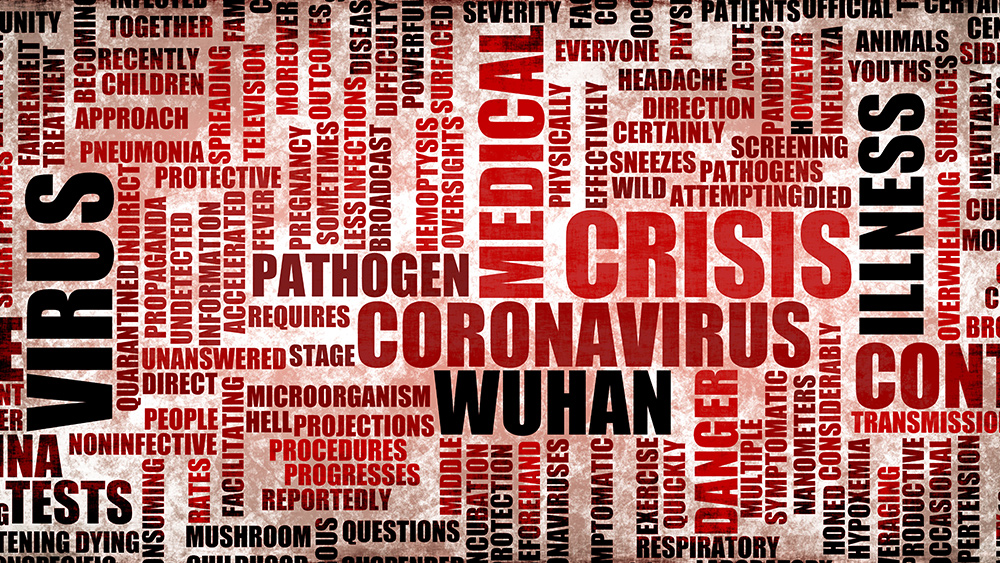Not losing weight on keto? Here’s why
11/23/2020 / By Michael Alexander

Originally developed in the 1920s, the ketogenic diet has increased in popularity in recent years as a weight-management method.
A popular diet among athletes and fitness enthusiasts, the ketogenic diet aims to make the body enter a metabolic state called ketosis. While in ketosis, the body uses stored fats as its primary energy source. This, experts say, is what causes keto dieters to experience dramatic reductions in weight.
However, some individuals have reported difficulties losing weight while on the keto diet. Here are some possible reasons why: (Related: 5 Tips for a successful keto diet.)
Eating too many carbohydrates
As noted by dietitians, one major reason a person does not lose weight while on the keto diet is that he has not achieved ketosis. This happens when the dieter does not cut back enough on carbohydrates, which should be limited to only five to 10 percent of his calorie intake.
According to adherents of the keto diet, limiting your carbohydrate intake to no more than 30 grams a day is enough to make your body enter the state of ketosis. However, while a person may feel as if he has drastically reduced his carbohydrate intake, he may still be consuming large amounts of the nutrient, thus preventing his body from burning its fat stores.
Eating too much protein
Another thing that can prevent the body from going into ketosis is consuming too much protein.
Many people mistakenly think that the ketogenic diet is a low-carb, high-protein diet. But eating plenty of protein-rich foods is counterproductive because excess proteins can be broken down into amino acids, which can then be used to create glucose.

For people on the keto diet, experts recommend getting most of your calories from healthy fats, which, ideally, should represent a whopping 60 percent of your total calorie intake. Eating this much fat leaves little room for protein, which should comprise only 35 percent of your daily diet.
Not counting calories
Another reason why someone on the keto diet isn’t losing weight is because he is eating more calories than his body can burn. High intake of calories can prevent the body from experiencing any benefits, despite being in a state of ketosis.
According to experts, fatty foods contain more calories than foods that are high in carbohydrates and proteins. Followers of the keto diet are therefore advised to keep track of the number of calories they consume, lest they end up negating the weight-reducing effects of ketosis.
Drinking too much alcohol
Those on the keto diet may drink alcohol, provided it is low in carbohydrates, such as gin and vodka. However, care must be taken to not overindulge in these drinks, as they are very calorie-dense.
As noted by dietitians, overindulging in these alcoholic drinks can prevent keto dieters from losing weight.
Engaging in little to no exercise
People who claim that the keto diet is doing nothing for their weight often forget that they need to combine the diet with regular physical activity.
Exercise, besides healthy eating, is an important part of a healthy lifestyle. This is especially true for people who are on the keto diet as regular exercise promotes a faster metabolism and helps the body burn more calories.
That said, here are some tips that can help you avoid the pitfalls that come with adopting new eating habits like the ketogenic diet:
- Start keeping a food journal. A food journal or food diary can help you track your food intake so you won’t exceed your daily allowance of certain foods or nutrients.
- Stay hydrated. Water can help fill up the stomach, preventing you from overeating throughout the day. In addition, water helps flush out waste from the body, cleaning it from the inside out.
- Get at least six hours of sleep. A healthy sleep cycle allows the body to reset and helps reduce stress levels. Stress, according to experts, may lead to excessive weight gain if not addressed promptly.
Healthy weight management and sensible weight loss can be achieved not just by adopting strict diets such as the keto diet, but by making — and maintaining — healthy changes to your overall lifestyle.
Learn more about other weight loss and fitness strategies at Slender.news.
Sources include:
Submit a correction >>
Tagged Under:
#nutrition, Alcohol, calorie intake, carbohydrates, Diets, exercise, fight obesity, fitness, keto diet, ketogenic diet, ketosis, natural health, protein, slender, tips, weight loss, weight management
This article may contain statements that reflect the opinion of the author





















